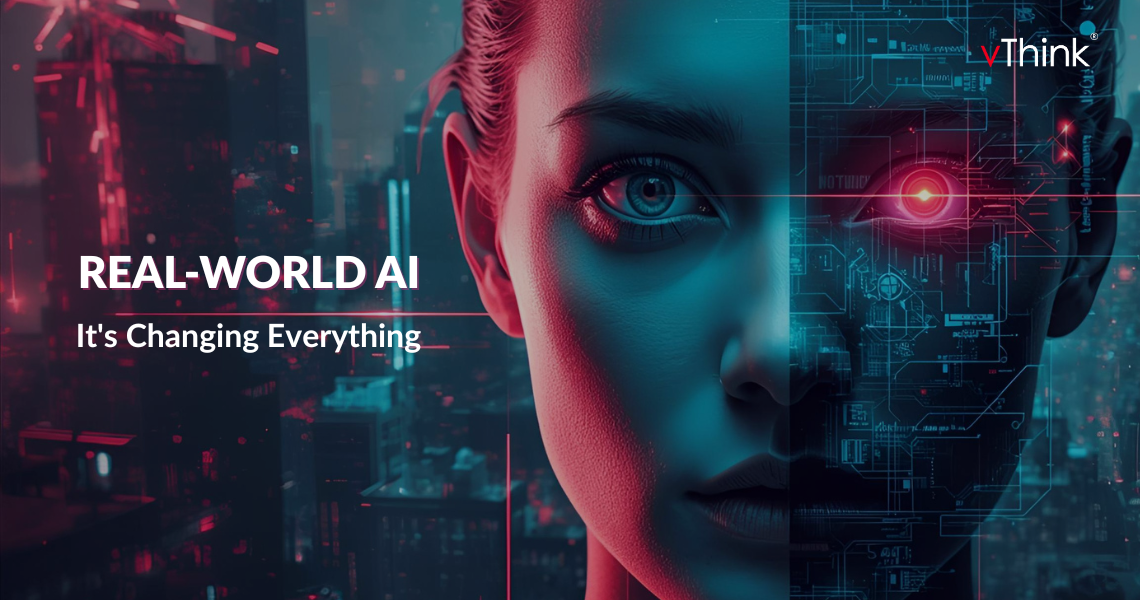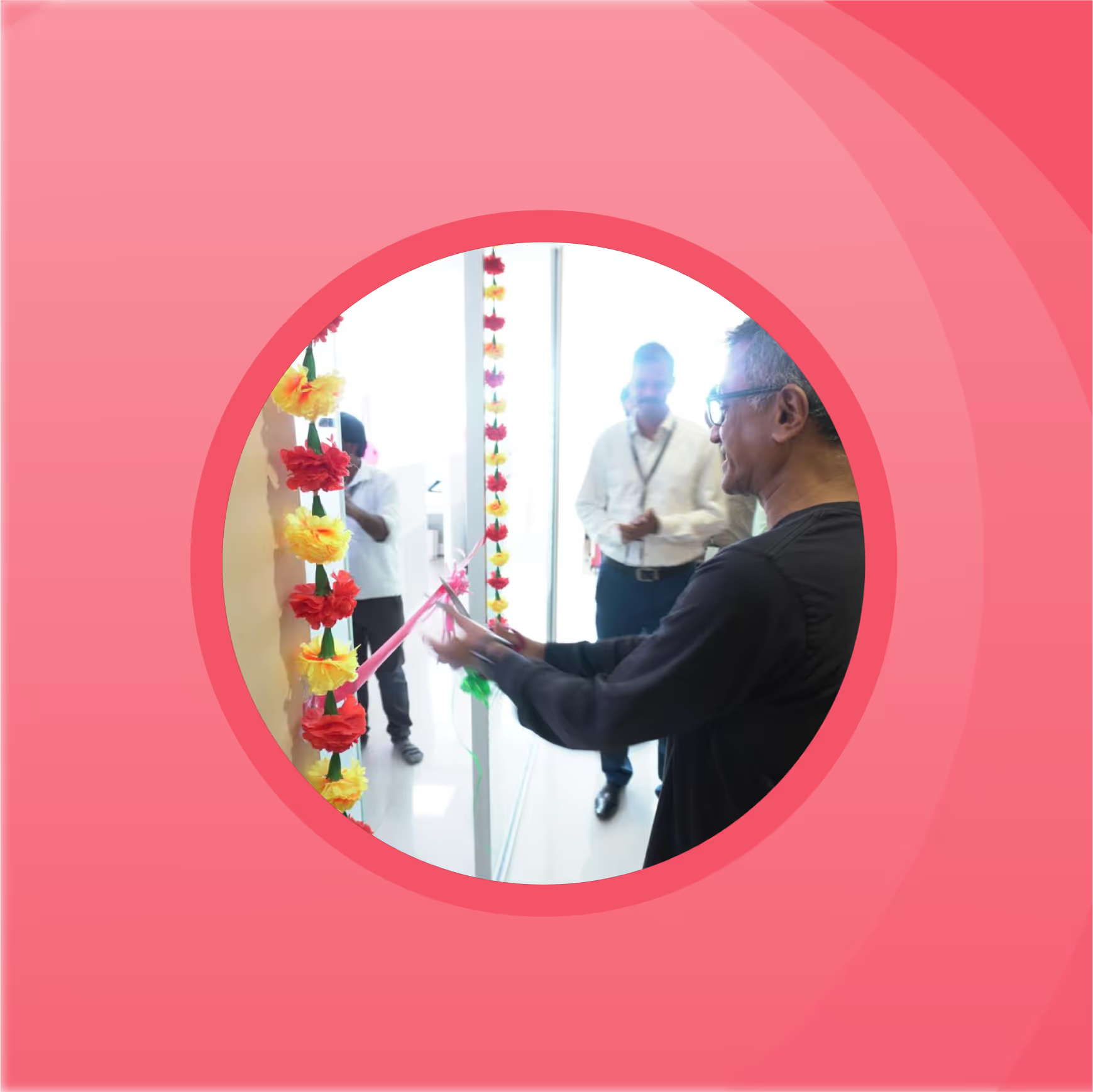Real World AI - It's Changing Everything
Artificial Intelligence (AI) is no longer just a futuristic concept—it is part of our daily lives. From unlocking your phone with Face ID to receiving personalized Netflix recommendations, AI is shaping the way we live, work, and interact.

Introduction
Artificial Intelligence (AI) is no longer just a futuristic concept—it is part of our daily lives. From unlocking your phone with Face ID to receiving personalized Netflix recommendations, AI is shaping the way we live, work, and interact.
This blog explores real-life applications of AI across industries, showing how it solves real-world problems and improves everyday experiences.
1. AI in Healthcare
AI is revolutionizing healthcare by enabling faster diagnoses, personalized treatments, and efficient hospital management.
Real-world examples
- Google’s DeepMind detected over 50 eye diseases with accuracy similar to expert doctors.
- IBM Watson Health supports oncologists by analyzing medical research and suggesting cancer treatment options.
- Butterfly iQ, an AI-powered handheld ultrasound, allows rural doctors to diagnose patients without bulky machines.
- Scenario: Imagine a patient in a small village being scanned with a portable AI ultrasound, where the app instantly tells the doctor if the patient has pneumonia—saving time and lives.
AI-powered chatbots like Babylon Health act as 24/7 personal doctors, answering basic medical questions and scheduling appointments. Hospitals use AI to predict patient inflow, ensuring enough beds and staff are available.
2. AI in Transportation
AI makes transport systems smarter, safer, and more sustainable.
Real-world examples
- Tesla Autopilot assists drivers with lane changes, parking, and collision avoidance.
- Waymo’s self-driving taxis operate in Phoenix, Arizona, without human drivers.
- Singapore’s public transport system uses AI to adjust bus timings during rush hours.
- UPS uses AI to optimize delivery routes, saving millions of gallons of fuel annually.
- Scenario: Picture ordering groceries online. Instead of waiting all day, AI predicts the best route for delivery trucks, ensuring your order arrives within an exact 30-minute window.
AI also helps in aviation. Airbus uses AI to monitor flight performance, predict maintenance needs, and improve fuel efficiency.
3. AI in Customer Service
AI ensures businesses can serve millions of customers without delays.
Real-world examples
- H&M and Sephora use AI chatbots to recommend products and help with shopping.
- Amtrak’s “Julie” AI assistant answers over 5 million customer questions every year.
- Bank of America’s Erica handles over 100 million interactions, helping customers check balances, pay bills, or manage loans.
- Scenario: Instead of waiting on hold for 20 minutes, a customer instantly chats with a bank’s AI assistant, which resets their password and explains their latest transaction.
AI-powered systems also analyze customer mood (happy, angry, confused) and suggest the best tone of response for human support agents.
4. AI in Smart Homes
Smart homes powered by AI learn user habits and make life more convenient.
Real-world examples
- Nest Thermostat lowers energy bills by learning your heating and cooling preferences.
- Philips Hue lights turn on automatically at sunset or when someone enters a room.
- Ring doorbells use AI-based facial recognition to notify homeowners when a stranger is at the door.
- Amazon Alexa and Google Home act as voice-controlled personal assistants.
- Scenario: Imagine walking into your home after work—the lights switch on, AC adjusts to your favorite temperature, and your favorite playlist starts—all triggered by AI recognizing your arrival.
5. AI in Finance
AI makes banking faster, safer, and smarter.
Real-world examples
- PayPal uses AI to detect suspicious activity and prevent fraud.
- JP Morgan’s COiN AI platform reviews legal contracts in seconds—a task that used to take lawyers thousands of hours.
- Robo-advisors like Betterment and Wealthfront automatically manage investments for millions of users.
- Scenario: A person applies for a loan. Instead of waiting weeks, AI reviews their credit history, income patterns, and spending habits—and gives instant approval.
Stock markets also rely heavily on AI for algorithmic trading, where trades worth billions are executed in microseconds based on AI’s market predictions.
6. AI in Education
AI is transforming the way students learn and teachers teach.
Real-world examples
- Duolingo uses AI to adjust lessons based on each learner’s strengths and weaknesses.
- Coursera recommends courses based on student interests and career goals.
- Grammarly helps millions of students improve writing by giving real-time suggestions.
- Scenario: A student struggling with math gets AI-generated practice questions tailored to their weak areas, while the teacher receives a dashboard showing which students need extra help.
AI also provides accessibility: tools like Microsoft Immersive Reader assist students with dyslexia, and text-to-speech systems help visually impaired learners.
7. AI in Agriculture
AI is helping farmers grow more food with fewer resources.
Real-world examples
- John Deere’s See & Spray technology detects weeds and sprays only where needed.
- Blue River Technology’s AI robots reduce pesticide use by 90%.
- CropIn, an Indian startup, uses AI to predict crop yields and detect pest infestations.
- Scenario: A farmer checks their phone and gets an AI alert: “Your cornfield needs watering in 2 days. Pest activity detected in the northwest section.” This saves water, prevents losses, and boosts profits.
AI-powered drones scan fields, while predictive models forecast weather patterns, allowing farmers to plan ahead.
8. AI in Entertainment and Media
AI is changing how we consume and create entertainment.
Real-world examples
- Netflix recommends shows based on viewing history, saving users 90% of browsing time.
- Spotify uses AI to create personalized playlists like “Discover Weekly.”
- Video games such as FIFA and Call of Duty use AI for smarter, more realistic opponents.
- Deepfake technology has been used to digitally recreate young versions of actors in Marvel movies.
- Scenario: A gamer plays against an AI opponent that learns their moves and creates new strategies—making the game unpredictable and fun.
AI also creates music (e.g., AIVA, an AI composer) and art, proving machines can be creative too.
Conclusion
Artificial Intelligence is already shaping our world in profound ways. From helping doctors save lives to powering self-driving cars, AI applications are everywhere.
What once seemed futuristic is now routine—whether you’re asking Siri a question, streaming your favorite Netflix show, or receiving faster medical care thanks to AI.
he challenge lies in using AI responsibly, ensuring it remains ethical, transparent, and fair. If guided correctly, AI can unlock a future where technology and humanity work hand in hand to solve global challenges.



